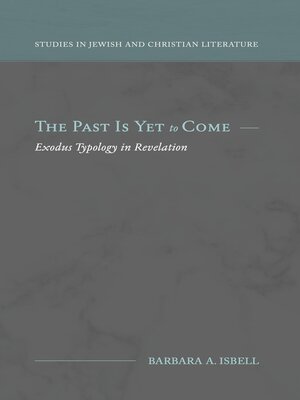
Sign up to save your library
With an OverDrive account, you can save your favorite libraries for at-a-glance information about availability. Find out more about OverDrive accounts.
Find this title in Libby, the library reading app by OverDrive.



Search for a digital library with this title
Title found at these libraries:
| Library Name | Distance |
|---|---|
| Loading... |
While scholars commonly recognize allusions to the exodus tradition in the book of Revelation, few inquires exist that examine their purpose, hermeneutical and theological function, and their cumulative impact. The presence of exodus imagery throughout Scripture suggests that the historical exodus from Egypt provided the Jewish people a pattern and hope for a more dramatic future deliverance. Isbell analyzes this hope in Revelation and finds that its author typologically incorporates images from each major stage of the exodus (the plagues, the Passover, and the wilderness wanderings) in a structured and purposeful manner, which enhances the reader's understanding of John's visions and exhorts believers to maintain allegiance to the Lamb in the face of persecution and a compromising culture.
The primary thrust of this project is to demonstrate that Revelation's use of exodus typology represents the eschaton as the culmination of salvation history, a reinstatement of God's initial purposes and ideals for his creation. At last, all that was inaugurated through Christ's redemptive death on the cross is completed, the covenants throughout Scripture are fulfilled, and the goal of the exodus is accomplished.







